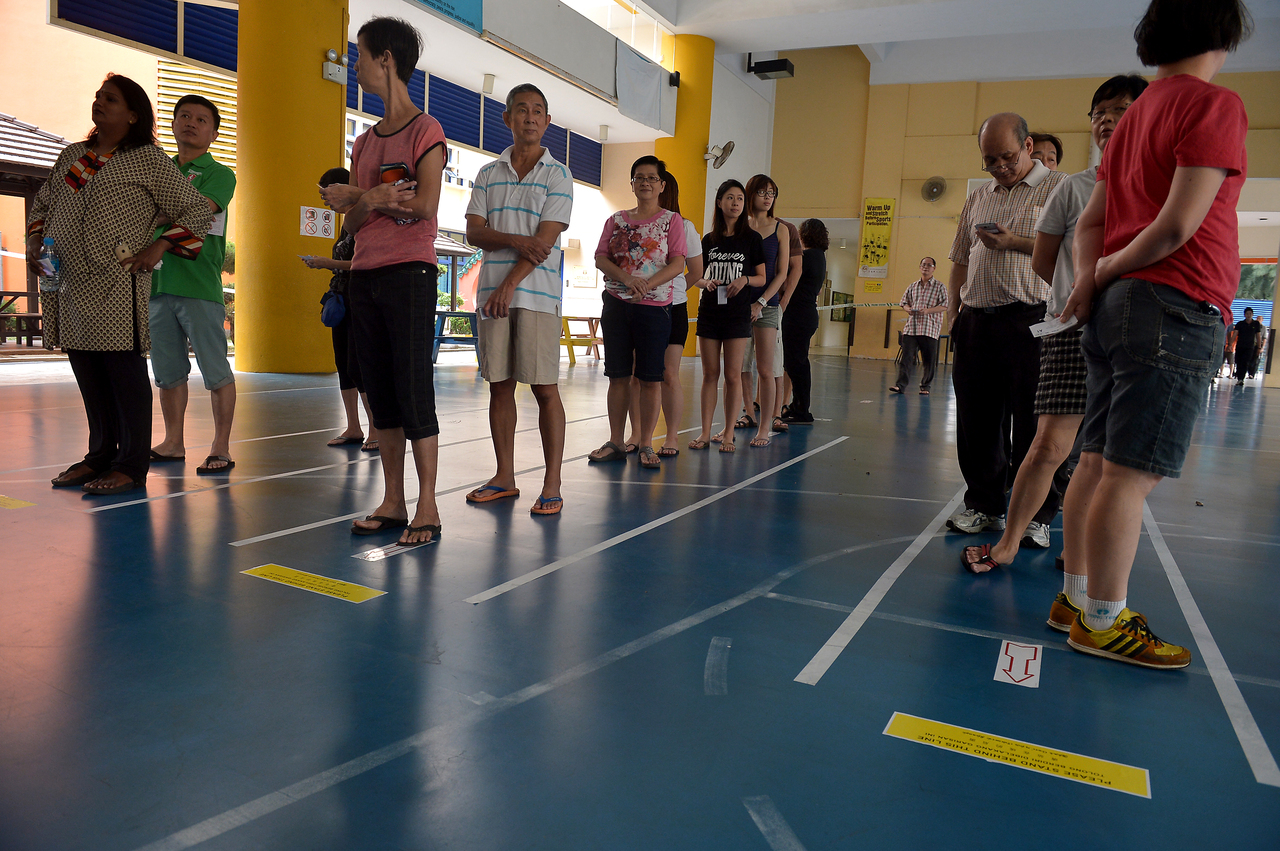New safety measures for S'pore GE: What voters need to know
Sign up now: Get ST's newsletters delivered to your inbox

Voters waiting to cast their ballots at Pei Chun Public School on Sept 11, 2015.
PHOTO: ST FILE
The Elections Department (ELD) on Monday (June 8) outlined safety measures for the upcoming general election, which must be held by April 2021.
Here is what voters need to know:
1. Temperature screening at polling stations
All voters will have their temperatures taken at the start of the queue at polling stations. The ELD said it will make a decision further down the line on whether voters found to have a fever or respiratory symptoms will be allowed to vote.
2. Voting windows
Each voter will be allocated a two-hour window in which they are encouraged to go cast their votes. This will be indicated on their poll cards and is meant to spread out voters across the polling hours.
Elderly voters aged 65 and above will be given two-hour windows from 8am to 12pm and may be accompanied by a household member. Senior voters who are unable to vote during their allotted time slots in the morning can join priority queues to do so at other times of the day.
Voters should not bring non-voters, like their children, to polling stations.
3. Contactless voting and contact tracing
The e-registration system will make the voting process take no more than five minutes. Voters will scan their NRIC to register, and no contact with election officials is required. The system will also be used for contact tracing if necessary.
4. Option to bring your own pen
While cleaners will regularly clean common touch points, including booths and self-inking "X" pens used for voting, voters can also bring their own pens to mark their ballot papers.
5. Protective gear
Wear a mask. Voters will also be asked to sanitise their hands and put on disposable gloves before they are handed their ballot papers. The gloves should be thrown away after voting.

6. Safe distancing at polling stations
Voters will have to keep a safe distance from people around them at all times inside the polling station. The same goes for election officials and polling agents.
7. More polling stations
The number of polling stations has been increased from 880 to 1,100. This will reduce the number of voters per station from 3,000 to 2,400.
8. Check for queues
Voters can check the queue status at their polling stations at VoteQ.gowhere.gov.sg. They are encouraged to vote during their allocated windows.
9. If you are sick
Do not go and vote if you are ill. After the election, such voters can apply to be restored to the register of electors without penalty.
10. If you are on stay-home notice (SHN) at a designated facility
These voters will be able to vote at special polling stations away from other voters.
11. If you are under a quarantine order, serving a SHN at home or have a medical certificate for acute respiratory symptoms
When the Writ of Election is issued, the ELD will consult the Health Ministry to assess the risks of allowing these voters to cast their ballots, and announce its decision then.


